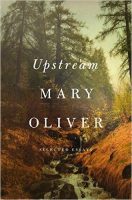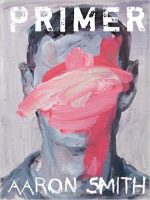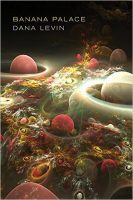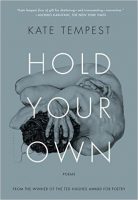October 12, 2016
Edited by David Sanders
Specimen Days
1685—Geeraerdt Burns, theologist/poet/historian, dies at 59.
1694—Matsuo Basho, greatest Japanese haiku poet, dies.
1820—Elias Annes Borger, theologist/poet (Ode on the Rhine), dies at 36.
1832—Walter T Watts-Dunton, England, lawyer/poet/writer (Aylwin), is born.
1887—Paula von Preradović, Croatian-Austrian poet (d. 1951), is born.
1896—Eugenio Montale, Italy, poet/translator (Xenia-Nobel 1975), is born.
1910—Robert Fitzgerald, American poet and translator (d. 1985), is born.

Another Effect Of The Moon
[translated by A. S. Kline]
The form of the carob tree that looms
naked against the somnolent blue,
the sound of voices, the process
of silver fingers over the doorsteps,
the feather that gets entangled, on the jetty
a trampling of feet that dies away,
and the felucca already falling back in flight
its abandoned sail in tatters.
— Eugenio Montale (1896-1975)
“the feather that gets entangled, on the jetty / a trampling of feet that dies away” — Eugenio Montale
World Poetry
Israel Prize Winners Call for Release of Palestinian Poet Dareen Tatour
Around 170 intellectuals and cultural figures sign petition calling for charges to be dropped against Tatour, arrested almost a year ago because over a poem published online.

Four Israel Prize laureates are among about 170 intellectuals and cultural figures who have recently signed a petition calling for the release from custody of Israeli Arab poet Dareen Tatour. Tuesday marks a year since she was detained amid allegations of incitement. She is currently under house arrest at her parents' home.
Channel 4 to Broadcast Poems by Young Refugees
PJ Harvey will collaborate with young poetry producers who will be curating readings, films, performances and workshops facilitated by the Poetry Society
Channel 4 is to air poems by young refugees and migrants in place of the usual short video introductions that appear before each programme. St Pancras International station in London will distribute poetry-themed tickets to travellers, who will also be treated to poet storytellers performing throughout the day. Singer PJ Harvey will collaborate with young poetry producers who will be curating readings, films, performances and workshops facilitated by the Poetry Society and Southbank Centre.
Recent Reviews
In Billy Collins’ ‘The Rain in Portugal,’ Popular Poetry Is Good Poetry
by John Cusatis
Billy Collins’ 11th poetry collection, “The Rain in Portugal,” lifts its title from a new poem in which he playfully mocks the restrictiveness of rhyming. “I like a cat wearing a chapeau or a trilby,” he remarks, alluding to Dr. Seuss’s famous feline. He also prefers to think of “Little Jack Horner sitting on a sofa.”
Your Thorns Are the Best Part of You
Marianne Moore’s Observations and Stevie Smith’s All the Poems
by Vidyan Ravinthiran
In Moore’s verse, snippets of borrowed speech or writing are recognized as such — they wear, quite without shame, their quotation marks — but her first impulse wasn’t to attribute, to include notes directing her readers to the original sources; this happened only at the prompting of Scofield Thayer, editor of The Dial. Moore’s “Note on the Notes” in the Complete Poems acknowledges contrary responses: “some readers suggest that quotation-marks are disruptive of pleasant progress; others, that notes to what should be complete are a pedantry or evidence of an insufficiently realized task.”
Billy Collins’ 11th poetry collection, “The Rain in Portugal,” lifts its title from a poem in which he mocks the restrictiveness of rhyming.
Broadsides
The Smell of Home
by Sarah Howe
Every time I land in Hong Kong and the plane doors hiss open, I’m greeted by a smell I find almost impossible to describe, but which takes me back to the earliest phase of my childhood. I might even call it the smell of home. “Sea-drizzle, diesel, damp, black hair”: a line from one of my poems is the closest I’ve managed to get to it in language. When my flight lands in late July, it’s less a fragrance that hits me than a sheet of humidity. My three-day visit coincides with the hottest day of the year. I have been sponsored by the British Council to attend this year’s Hong Kong Book Fair. I’m told the fair started out as an effort to boost the city’s cultural life during the dead lull of summer: more than a million visitors will cross its threshold over the week.
The Machine and the Poet
Jean Sauvageau was an instrument inventor, Claude Péloquin a fiery poet. The two combined to make one of the weirdest albums ever
By Pierre-Mathieu Fortin
If you stepped into the Youth Pavilion of the 1967 Montréal International Expo, you might not notice the exits locking behind you. The innocent-looking young man with curly hair and glasses named Claude Péloquin didn’t seem all that scary anyway, standing there, microphone in hand. But then all hell broke loose. Insanely loud electronic space sounds came from a machine made of keyboards, wires and oscillators from the powerful speakers surrounding the room.
Robert Frost's 'Design' and 'The Rule of the Shorter Term'
by Helena Nelson
After publishing Charlotte Gann’s book, Noir, I’ve started to think of noir poems as a genre — poems with shadows; poems that set up the dark/light opposition. Poems that expose. So it struck me yesterday that Robert Frost’s sonnet ‘Design’ was another of them. And it appears I can quote it in full, since it’s listed as a poem that’s in the public domain in the USA in Wikisource. But wait – copyright is a strange business.
'Articulating your experience is remarkably life-affirming'
To mark World Mental Health Day, the Forward prize-shortlisted poet talks about how writing has figured throughout her psychiatric recovery
by Melissa Lee-Houghton

During my first prolonged hospital admission, at the age of 14, I wrote. At that West Yorkshire in-patient unit, I witnessed other patients cut their own throats, burn their skin and swallow glass. At this stage, I wasn’t medicated so I endured all of this by writing letters to the other girls; this soon evolved into my reading and writing poetry.
To mark World Mental Health Day, Melissa Lee-Houghton talks about how writing has figured into her psychiatric recovery.
Drafts & Fragments
Woman Tweets Poem About Mansplaining, Instantly Gets Lectured By A Ton Of Men
It’s a tale as old as time. Man says something wrong. Woman tells him it’s wrong. Man says she’s wrong for telling him he’s wrong. And so the world turns. Felicity Morse, an editor, tweeted a poem called “Differences of Opinion” written by Wendy Cope for National Poetry Day. Morse said the poem “nails mansplaining” — you know, when a man explains something to a woman with extreme confidence even if he’s wrong and even if the woman is an expert in what she’s talking about.
Woman Tweets Poem About Mansplaining, Instantly Gets Lectured By A Ton Of Men
Poetry In the News
Celebrating Seamus Heaney’s Legacy, at His Birthplace

No such thing as innocent bystanding,” the actress Fiona Shaw said, staring fiercely at a group of people on a chilly, heavily misted morning in a farmer’s field here, filled with the sounds of lowing cattle and bird calls. The Irish-born Ms. Shaw was standing on top of a hay-filled trough, reading from Seamus Heaney’s “Mycenae Lookout,” and those words — which Heaney may have meant to refer to Ireland, as much as to Aeschylus’ “Oresteia” — took on a surprising, uneasy resonance when spoken out loud.
Prince Charles Launches National Poetry Day with Heaney Poem
The Prince of Wales has been heard reading Seamus Heaney's poem The Shipping Forecast poem to mark National Poetry Day. The recording was broadcast on BBC Radio 4's Today as part of the annual nationwide poetry celebration. This year's theme is Messages, and the public are being encouraged to "say it with a poem".
The Prince of Wales has been heard reading Seamus Heaney’s poem The Shipping Forecast poem to mark National Poetry Day.
New Books
Upstream: Selected Essays by Mary Oliver
[Hardcover] Penguin Press, 192 pp., $26.00

Upstream follows Oliver as she contemplates the pleasure of artistic labor, her boundless curiosity for the flora and fauna that surround her, and the responsibility she has inherited from Shelley, Wordsworth, Emerson, Poe, and Frost, the great thinkers and writers of the past, to live thoughtfully, intelligently, and to observe with passion. Throughout this collection, Oliver positions not just herself upstream but us as well as she encourages us all to keep moving, to lose ourselves in the awe of the unknown, and to give power and time to the creative and whimsical urges that live within us.
Inside Job by John Skoyles
[Paperback] Carnegie Mellon, 72 pp., $15.95
The poems in Inside Job range from intensely autobiographical lyrics to brief historical portraits of literary figures like Grace Paley and Jorge Luis Borges, to obituaries of idiosyncratic characters such as heavyweight boxing contenders and inventors of candy bars. The tone is often wry, sometimes wistful, and always compassionate.
Primer by Aaron Smith
[Paperback] University of Pittsburgh Press, 104 pp., $15.95

In his third poetry collection, Primer, Aaron Smith grapples with the ugly realities of the private self, in which desire feels more like a trap than fulfillment. What is the face we prepare in our public lives to distract others from our private grief? Smith's poetry explores that inexplicable tension between what we say and how we actually feel, exposing the complications of intimacy and the limitations of language to bridge those distances between friends, family members, and lovers. What we deny, in the end, may be just what we actually survive.
Star Journal: Selected Poems by Christopher Buckley
[Paperback]University of Pittsburgh Press, 144 pp., $16.95
Star Journal is a selection of poems from Christopher Buckley's twenty previous collections, from 1980-2014. Past praise from Philip Levine: “The poems are modest, straight forward, intensely lyrical and totally accessible. . . . This is a humble poetry of great truths and profound emotions that never overstates its concerns for the events both in and above the world. It rewards countless readings and never betrays itself.”
Banana Palace by Dana Levin
[Paperback] Copper Canyon Press, 96 pp., $17.00

In her newest collection, Dana Levin uses humor, jump-cut imagery, and popular culture references in preparation for the approaching apocalypse. Against a backdrop of Facebook, cat memes, and students searching their smartphones for a definition of the soul, Levin draws upon a culture of limited attention spans as it searches for greater spiritual meaning. The poems in Banana Palace are elliptical by design, the lines often trailing off into a white space of their own making, as if flirting with and resolving in their own isolation.
In his third poetry collection, Primer, Aaron Smith grapples with the ugly realities of the private self.
Correspondences
Lindsey Bolt on Returning to the Dark, Wet, Green Sludge
by Rebecca Samuelson

Lindsey Boldt is a poet, performer and editor, born out of the wilds and muds of Olympia, Washington. She is the author of <(())> (2016), Titties for Lindsey (2013), and Overboard (2012). Poems, essays, and other writings can be found at Art Practical, The Drunken Boat, and in the forthcoming ON Contemporary Poetics: New Narrative Feature. She also writes and performs plays, songs and other performative outbursts, including audio commentary for the 1993 movie “The Pelican Brief” (forthcoming from Troll Thread). She has been an editor for The Post-Apollo Press, the chapbook series, Summer BF Press, and is currently Managing Editor of Nightboat Books. She lives in Oakland, California with her sweetheart and two cats.
Lindsey Boldt is a poet, performer and editor, born out of the wilds and muds of Olympia, Washington.
Envoi: Editor’s Notes
Kate Tempest's Poetry Is Simply No Good
Few would describe the south Londoner’s poetry as ‘moreish’. Less-ish, perhaps
by Lloyd Evans

Kate Tempest, a 30 year old dramatist and poet, has an appeal that’s hard to fathom. Is it all in the elbows? Like most performers raised on hip hop, she recites with her upper limbs flapping and wiggling as if by remote control. For emphasis she uses that impatient downward flicking gesture, beloved of rappers, like a countess at a buffet ridding her fingers of unwanted guacamole.
* * * * * * *
It turns out a bad review does exactly what a good review does: It directs you to the source of its inspiration. In the case of Lloyd Evans' scathing review of Kate Tempest, it directed me to a copy of her book Hold Your Own, which I had bought last year but hadn't gotten around to reading yet. So I took it off my shelf and gave it a look. I'm glad I did.
The poetry was tough, lively, personal, witty, musical, vulnerable, and thoughtful. Here is a portion of her poem "The Point":
. . . .
Each joy feels like a threat:
Although there's beauty everywhere
it's shadow is regret.
Still, something in the coming dusk
whispers not to fret.
Don't matter that we'll lose today.
It's not tomorrow yet.
Thank you, Mr. Evans. Thank you, Ms. Tempest.